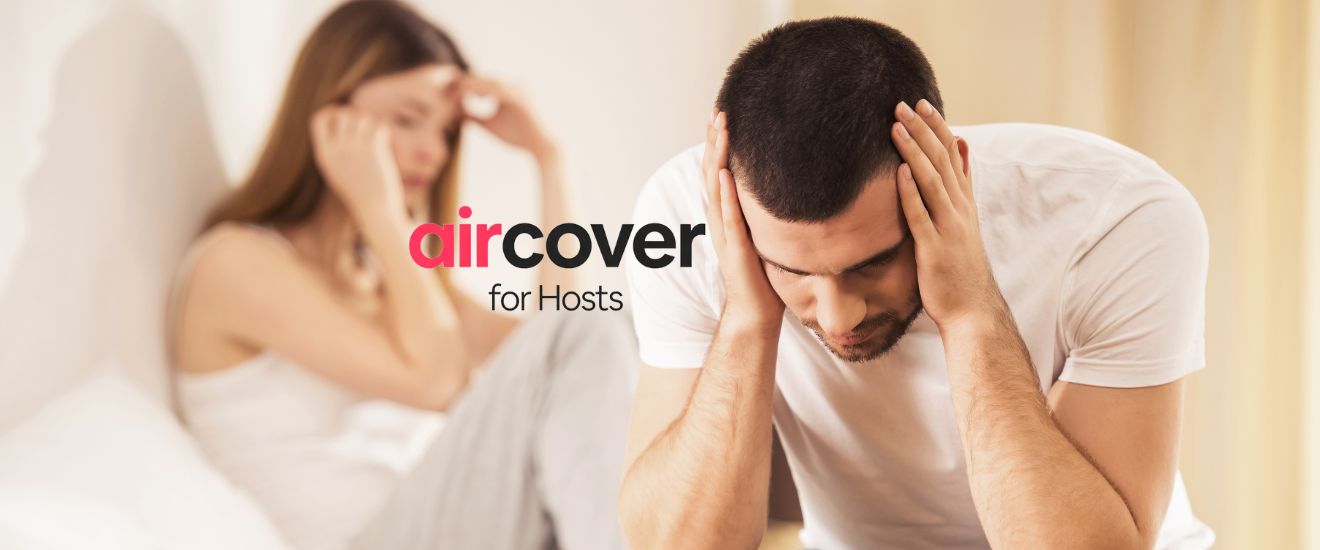Everything About Airbnb Insurance AirCover (for Hosts)

Fear of damage to your accommodation is never unwarranted. It’s always a concern, and hosts constantly wonder what condition their property will be in when a guest departs. Will the guest leave everything in perfect order? Will the furnishings in the accommodation remain undamaged? What if damage does occur? This scenario is certainly not uncommon, and there have been several cases where Airbnb support had to be involved because a guest refused to acknowledge the damage, let alone cover it. How should you handle this situation? In the following, we’ll explain how AirCover works, what it covers precisely, and how to file a damage claim.
AirCover - Protection for Hosts
Airbnb AirCover is a type of insurance that consists of two parts. It provides coverage for damaged property up to $3 million and liability insurance up to $1 million. Everyone who lists on Airbnb is automatically enrolled in the AirCover program, regardless of whether they have additional insurance from a local provider. While this insurance is not mandatory, hosts can opt out at any time by sending a request to epi-opt-out@airbnb.com. Airbnb places a strong emphasis on safety, routinely and thoroughly verifying the identity of guests who make reservations. The system also performs additional checks on each reservation, blocking or preventing bookings that pose a significant risk of disruptive parties or property damage.
What’s the difference between property damage coverage and liability insurance?
Property damage coverage for hosts protects you if a guest or their pet damages your property during their stay on Airbnb. Host liability insurance applies in rare cases when a guest is injured during their stay or experience on Airbnb. This insurance only applies during the guest’s stay, from check-in to check-out. Any damage occurring outside of this period is not covered by AirCover. If a guest is injured, complete the liability insurance claim form.
What isn’t covered by AirCover?
Host property damage insurance does not cover:
- Damage to property and/or items due to normal wear and tear
- Currency loss
- Damage to property and/or items due to natural disasters such as earthquakes and hurricanes
- Injury or property damage suffered by guests or others (this may be covered by host liability insurance)
- Theft of cash and securities, such as money, savings bonds, and stock certificates
- Theft of a host’s pets or livestock
- Personal liability for injuries to guests or third parties
How to proceed in the event of damage:
If damage occurs to your property, follow these steps:
- Check whether the damage is covered by AirCover.
- Gather all possible evidence of the damage. Take as many photos as possible that clearly show the damage. Also, take video footage that you can use as supporting evidence for reimbursement. If repairs are needed, obtain a quote or invoice indicating the cost of repairs. If the damage is significant, witnesses, police reports, etc., are welcome.
- Submit a host claim through the Resolution Center. You have up to 14 days after the guest’s departure to do so. During this time, you are allowed to accept new bookings.
- When you submit a host claim for AirCover, Airbnb will initially present the claim to the guest, who will have 24 hours to make the full payment. If the guest responds and agrees to pay the full amount, they will send the payment through the Airbnb app. Once Airbnb receives it, they will process it and transfer the amount to you.
- If the guest refuses to pay the full amount or does not respond, you can involve Airbnb support. Keep in mind that if you want to involve Airbnb support in your host claim, you must submit evidence of the damage within 30 days of the incident.
- If you are a superhost, you have access to a special support line and priority in processing claims and reimbursements.
- Your payments will be processed within two weeks at the latest.
Do you need additional property insurance for your rental property?
Many hosts have experienced that renting out their property can quickly become a cost instead of an additional source of income, as guests may not treat the property with care. There is always a risk that a guest, intentionally or unintentionally, may damage the property. At such times, having property insurance can make a significant difference. AirCover only applies to damage that occurs during stays in Airbnb accommodations, and many hosts also advertise on other platforms where insurance is not included or only partially covered. Therefore, we recommend insuring your property with an external insurance provider, as it can protect you in situations that Airbnb does not cover.
See also
How to Successfully Rent an Apartment Remotely?
How to Choose the Right Channel Manager for Your Vacation Rental? Follow these 9 Tips
9 Most Frequently Asked Questions about Vrbo
What is a Channel Manager System?